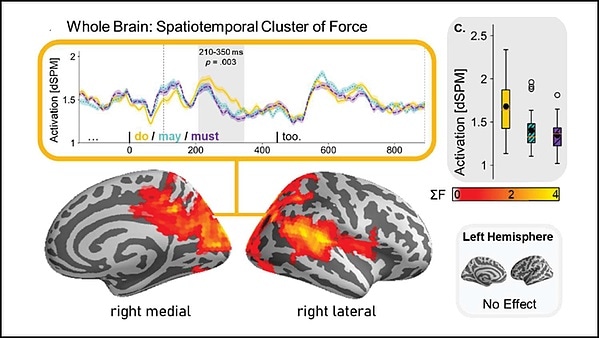Processing certain factual information elicits stronger brain activity than uncertain information, according to research recently published in eNeuro.

Modal language like “might” and “may” allows humans to speculate about possibilities, in both the real world and fictional ones. When reading a story, the brain adds new information to a model of the developing situation. But not all information is certain — think “Sarah owns a cat” vs. “Sarah might own a cat.” So, how does the brain differentiate the two?
Tulling et al. used magnetoencephalography to compare how the brain processes factual and modal language in short narratives. Factual sentences contained the verb “do,” and modal sentences contained the verbs “may,” “might,” or “must.” Factual sentences elicited stronger brain activity than modal sentences within 200 milliseconds of the target verb appearing.
This suggests the brain was adding the factual but not uncertain information to its model of the described situation. But the location of the increased activity differed, potentially due to perspective. Updating the representation of a story character's beliefs increased activity in right temporoparietal areas, while updating one's own increased activity in frontal medial areas. These findings suggest the human brain contains a robust, perspective-adjusted neural representation of factual information and more elusive cortical signals reflecting the computation of possibilities.
Source:
Journal reference:
Tulling, M., et al. (2020) Neural correlates of modal displacement and discourse-updating under (un)certainty. eNeuro. doi.org/10.1523/ENEURO.0290-20.2020.